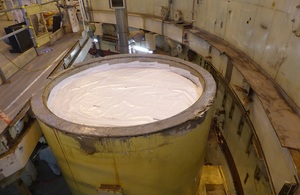Strengthening women’s resilience and leadership as a path to peace in regions plagued by armed groups
Thank you, President. Let me thank the Deputy Secretary General and all our briefers today for your testimony, your advocacy and your leadership.
As we mark the anniversary of Resolution 1325, the UK is proud to be a leading champion of the Women Peace and Security agenda in the UN and around the world. And yet the stark reality presented by our briefers speaks for itself. Despite our collective efforts of 22 years, we all need to do more to deliver on the promise of 1325. Today I’d like to highlight three of our priorities.
First it is clear that we need to strengthen the global response to conflict-related sexual violence. A 20% increase in sexual violence against children and a 41% increase in the abduction of girls as reported in the Secretary General’s 2022 report on children in armed conflict cannot be ignored.
That is why the UK will host an International Conference on Preventing Sexual Violence in Conflict on 28-29 November. We will gather countries together to galvanise the response to CRSV, and we will launch a political declaration to send a strong message that we will support survivors, help prevent future violence, and hold perpetrators to account. We urge member states to endorse this declaration, and make a national commitment outlining practical steps they will take to prevent and respond to CRSV, for example implementing the Murad Code.
Second, we continue to support women’s participation in peace efforts. Women are integral to building lasting peace and security, and their full, equal and meaningful participation in peace processes is the cornerstone of our approach to WPS. But progress here has been too slow as we’ve heard today.
There has been no significant increase in women’s participation in peace processes since 2000, despite all the rhetoric. So the UK’s fifth WPS National Action Plan will focus on concrete and practical ways to reflect the contribution women make to peace in a changed strategic environment, from Afghanistan to Ukraine, from climate security to cyber threats.
Third, President, we need to create an enabling environment for women to participate. A major barrier to women’s engagement in political life is the rising risk of reprisals. The Secretary-General’s latest WPS report highlights that since 2018, over a third of the women briefers to the Security Council have faced reprisals. This is simply not acceptable. The UK is committed to protecting women human rights defenders and briefers who courageously speak in this chamber. In partnership with OHCHR, we developed Guidance for Member States to mitigate reprisals against civil society briefers.
President, Women’s place at the peace table is not only their right, it is essential to building and sustaining peace and security. Every absence will be our collective loss.
Thank you.
